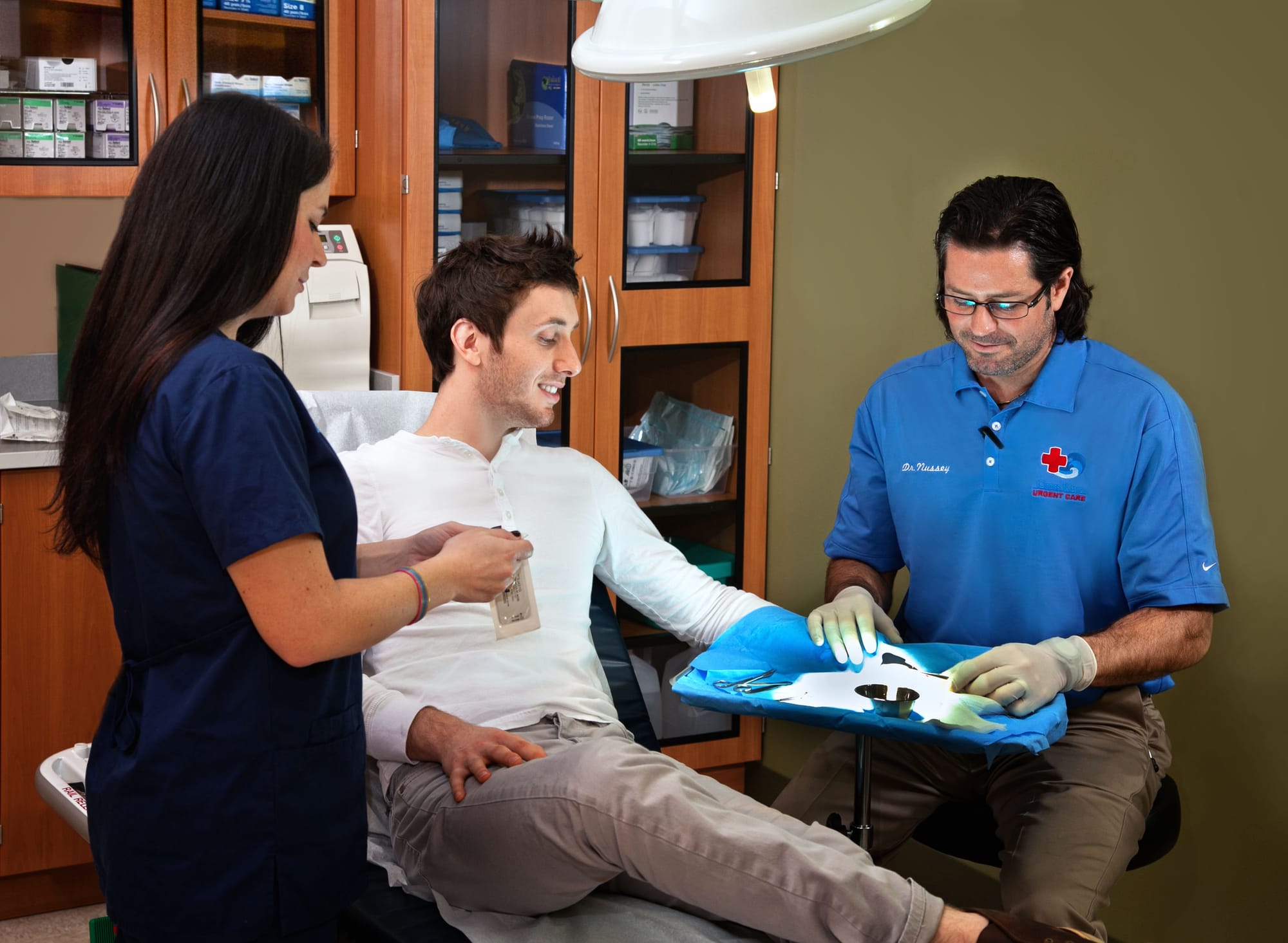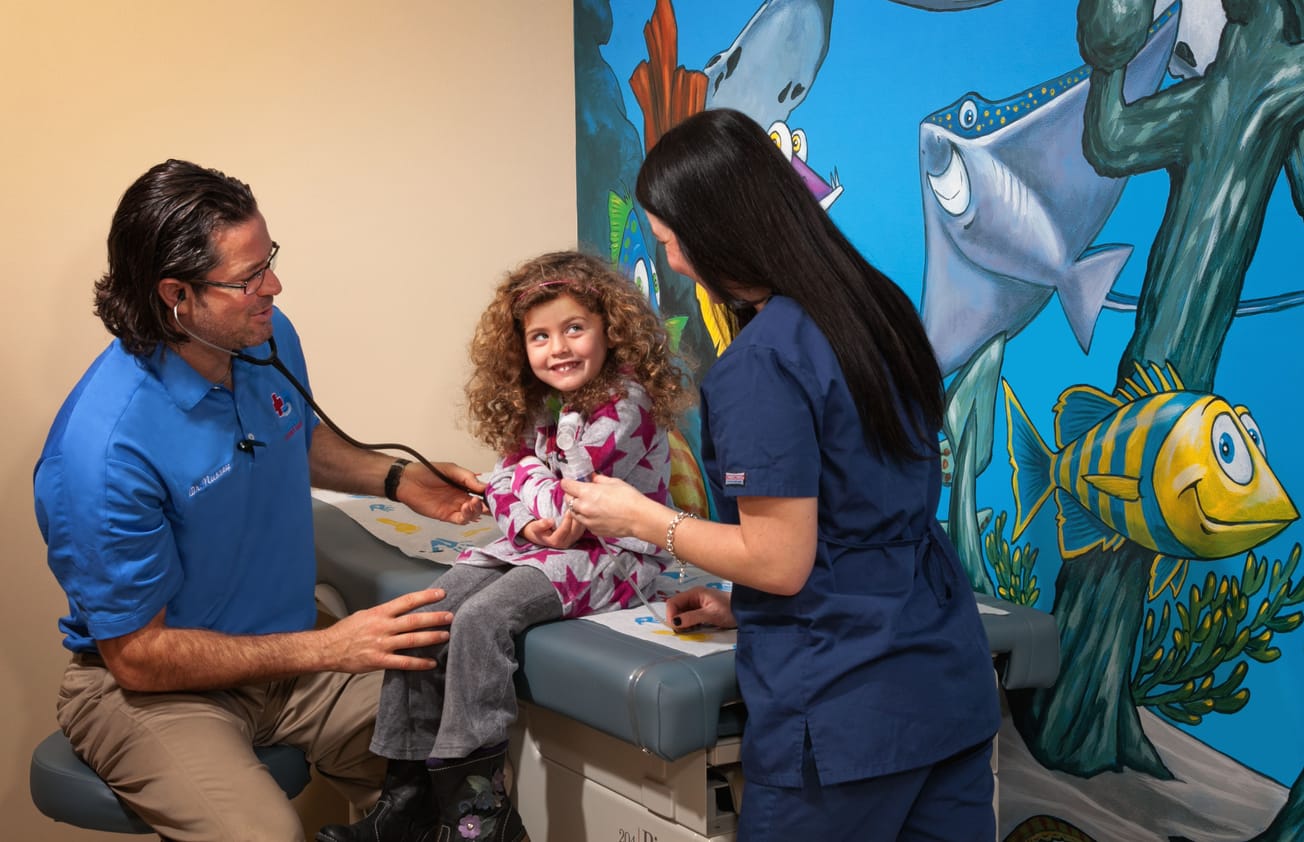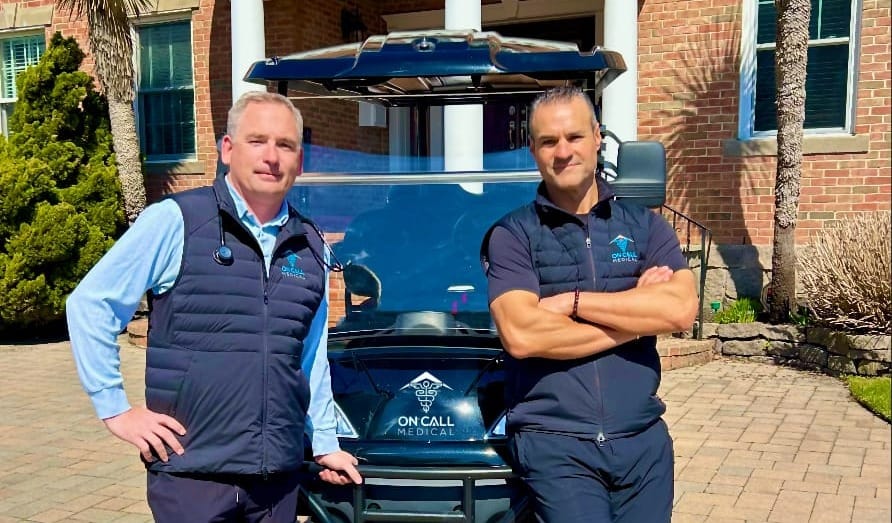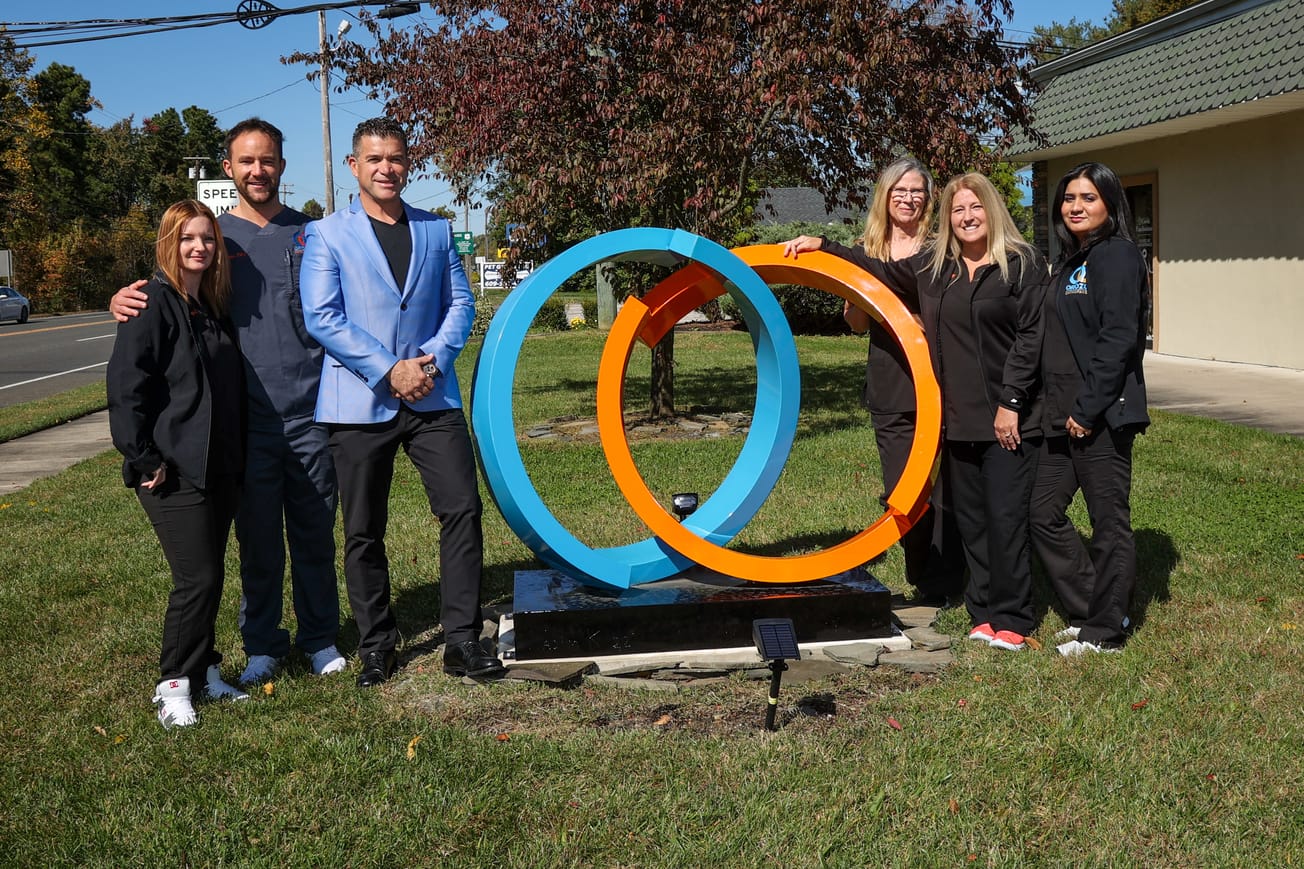By Felicia L. Niven
You may not think twice about donning a bathing suit and heading to the beach this summer, or hopping onto a boat or personal watercraft. But some of these outdoor adventures, and even rites of passage such as a first summer job, could land you at Urgent Care, in the Emergency Room, or at the very least at your primary care provider’s office. That’s why it’s important not only to take precautions to keep you and your family safe and healthy, it’s good to know the medical resources that are at the ready.
“We’ll see a lot more sports-related injuries in the summer,” said Dr. John Ruskey, D.O., Co-Medical Director, AtlantiCare Urgent Care Services. “People are out enjoying the weather, so that may mean a sprained wrist or ankle from a bicycle ride. You also can get dehydrated very quickly out in the sun, and if you don’t apply enough sunscreen, sunburn is a painful reality.”
But it’s not just summer fun that puts you at risk. Dr. Ruskey sees a lot of teenagers at their first summer jobs. “We’ll see kids who work in restaurant kitchens for burns or injuries,” he said. “Recently, we treated a teen who cut himself slicing a tomato. We had to irrigate the wound, suture and stitch it, and make sure he had an up-to-date tetanus shot. We were able to access his electronic records, and get him in and out, and back to work.”
That’s one of the advantages of AtlantiCare’s Urgent Care facilities, which Dr. Ruskey refers to as a one-stop shop. “It’s like the fast track of the ER,” he explained.
“We’ve got a state-of-the-art digital x-ray, and a board certified radiologist on duty. We can do a reading within an hour, get a definitive diagnosis, and put a patient on crutches if needed. For dehydration, we can check a patient’s electrolyte levels and administer IV fluids. This year, we instituted a new program where we stock 14 different medications so we can even send you on your way with a prescription. In general, we can handle everything from mild to moderate trauma, and, because our physicians are board certified, we’re very good at spotting the person who needs to get right to the ER.”
AtlantiCare operates ten Urgent Care Centers throughout southern New Jersey. Hours vary, but Urgent Care is open seven days a week, including nights and weekends. With its single co-pay and multitude of services, Urgent Care is an attractive healthcare option, though Dr. Ruskey cautions that it should be reserved for urgent medical problems and not ones that can wait until your primary care provider has office hours.
Urgent Care practitioners generally treat patients with general illness, including but not limited to the common cold, the flu, insect bites and stings, cuts or small lacerations, patients who need stitches or splints, non-narcotic prescription medication refills, tetanus shots, and many other non-life threatening injuries and illnesses. They also typically handle foreign body removal, nebulizer therapy, onsite lab tests and x-rays, EKGs, and prescription needs. The ER treats patients for life-threatening illnesses and injuries. If you’ve been in a vehicular accident, have severe bleeding or broken bones, if you’re experiencing an asthma attack or COPD, if you suspect a heart attack or stroke, call 911 immediately or head right to the Emergency Room.

“It’s fairly common that people suffer injuries while they are away from home because they are in new or different surroundings,” said Kristen Radcliff, M.D., Rothman Institute at AtlantiCare. “I treated a patient who had fallen down the stairs in their beach house and developed a broken neck,” he added. “ Look out for throw rugs, furniture and other hazards in your beach house or other travel accommodations that would be less familiar than your own home would be.”
Boating is also a potential summer hazard, according to AtlantiCare staff who often see back injuries from the jostling against the waves. “People could be here vacationing or simply enjoying the weather, but could end up in the ER or Urgent Care very easily,” said Dr. Ruskey. “One of our strengths is that our physicians are very comfortable seeing new patients. You don’t have to be an AtlantiCare patient or in our system. We easily develop a rapport so you feel comfortable talking with us and discussing your medical needs.”
For information about AtlantiCare’s Emergency Departments, Urgent Care Centers or other services, visit www.atlanticare.org, call the AtlantiCare Access Center at 1-888-569-1000 or find AtlantiCare on Facebook at www.facebook.com/atlanticare. Book urgent care appointments online by visiting atlanticare.org or by using the free ZocDoc mobile app. For guidance on which medical options which might be the best fit – from the ER to Urgent Care to Primary Care Plus – visit http://www.atlanticare.org/index.php/emergencies/what-level-of-care-do-i-need.
Checklist to Summer Safety
1. Use a water-resistant sunscreen with a sun-protection factor, or SPF, of at least 30. Choose one which also offers protection against UVA and UVB rays.
2. Use insect repellant, avoid brushy areas, and check for ticks daily. Don’t spray young children’s hands with repellent because they often put them in their eyes and mouths.
3. Swim only in lifeguard protected waters. Diligently supervise children in and near water.
4. Stay hydrated by drinking plenty of water. Watch for the signs of dehydration: lightheadedness, nausea and weakness.
5. Alcohol and summer activities can be a deadly combination. Never mix alcohol with swimming, boating, or driving. Alcohol impairs judgment and contributes to dehydration.








